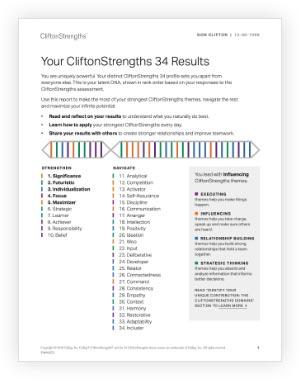Leadership faces momentous challenges in today’s ever-changing workplace. The latest trend in U.S. organizational restructuring -- thinning out middle management -- leaves fewer managers to address the issues plaguing the workplace.
Among these problems, low engagement stands out. Four in five employees globally are still not engaged at work. Even more troubling, 52% say they are watching for or actively seeking a new job.
The negative effects of low engagement extend beyond retention rates. Gallup’s annual State of the Global Workplace report estimates that low engagement costs the global economy $8.9 trillion, or 9% of the global GDP.
It’s bad for your employees’ wellbeing, too.
When employees aren’t engaged, they come to work, put in the minimum effort required and watch the clock. They’re also more likely to experience stress and burnout than engaged workers.
This adds up to a workplace where people feel disconnected from their colleagues and the company’s mission. Where employees feel lost, stressed, rundown and burned out.
Forget about innovating, delivering on promises for customers and organic growth. When engagement is low, it’s about surviving until the end of the workday.
Addressing this problem is even more challenging in the modern workplace. As organizations trim layers of management to reduce costs, managers who remain feel the strain as they grapple with changing business needs, shifting priorities and learning how to effectively manage their hybrid teams -- often without formal training. Only three in 10 hybrid managers have received any formal training on leading hybrid teams.
Managers face complex questions such as:
- How can you create a consistent culture when employees experience your workplace differently?
- How can you foster trust, collaboration and innovation with a team that can’t physically come together for a team-building exercise?
- How can you get the most out of your organization’s talent with budget constraints, flatter organizational structures and hiring freezes?
It’s no surprise many managers are stuck in crisis mode as they struggle with burnout and their own engagement.
Thankfully, these aren’t rhetorical questions -- a solution exists.
By aligning employee development strategies with each employee’s CliftonStrengths -- their natural patterns of thinking, feeling or behaving -- you empower all employees to use their natural talents to achieve their full potential. This accelerates your outcomes, speed and growth as an organization.
There’s a Better Way to Support Your Managers
Picture a world where all your employees get to do what they do best. One where they love your workplace culture, feel like they belong, and can quickly partner and team up with one another. A world where they are coached to perform at their best and feel great about their work and lives.
This seeming workplace utopia is possible. As leaders of companies who aim strengths at challenges have discovered, it’s good for more than just your employees’ day-to-day work and life experiences -- it’s really good for business.
Companies that incorporate strengths into their culture experience:
- 23% higher employee engagement
- 29% higher profit
- 19% higher sales
- 72% lower turnover
Focusing on strengths uses positive psychology to maximize the potential of individuals, teams and companies. And yet, integrating strengths goes beyond optimizing your company’s greatest asset -- your people -- it accelerates everything.
Using the shared language of strengths helps individuals establish trust and build relationships with coworkers faster, which holds true for peer-to-peer and manager-to-employee relationships. Navigating conflicts becomes easier and less personal when you understand why someone is approaching a task differently than you would -- you have different strengths and thus different work styles.
Sustainable high performance comes more easily when each person is aware of the other’s strengths and can tap into each other’s talents. Managers benefit from strengths by building better project teams and managing resources more effectively. Knowing someone’s strengths is essentially the CliffsNotes to knowing what drives and intrinsically motivates them.
A focus on strengths makes it easier to welcome people with different talents, experiences, and viewpoints and to understand and appreciate the value this diversity in thought and work style brings.
Put Strengths to Work for Your Leaders
Gallup has seen companies achieve remarkable outcomes by introducing strengths-based strategies in the workplace. Our decades of experience studying strengths and partnering with organizations to help create strengths experiences provide valuable insight into best practices and common pitfalls.
For leaders ready to take their engagement strategy to the next level with strengths, Gallup recommends starting with these best practices:
- Create strengths experiences. Equip all employees to apply and lead with their strengths.
- Build strengths capability. Build internal capability to implement and scale the strengths movement.
- Measure the effect of strengths. Demonstrate qualitative and quantitative results achieved through strengths.
Increasing engagement and achieving more faster are within reach. Strengths is a powerful tool for aiming strengths at challenges and driving key business initiatives. And if the constantly evolving workplace has taught us anything, it’s that disruption will persist and demands a proactive approach.
Prepare your teams for future challenges by implementing an intentional, integrated and individualized strengths strategy.
Strengths make tackling your workplace challenges easier.
- Learn how CliftonStrengths helps teams work better together.
- Discover how organizations use strengths to get the best out of their people.
- Partner with Gallup to put strengths to work at your organization.




